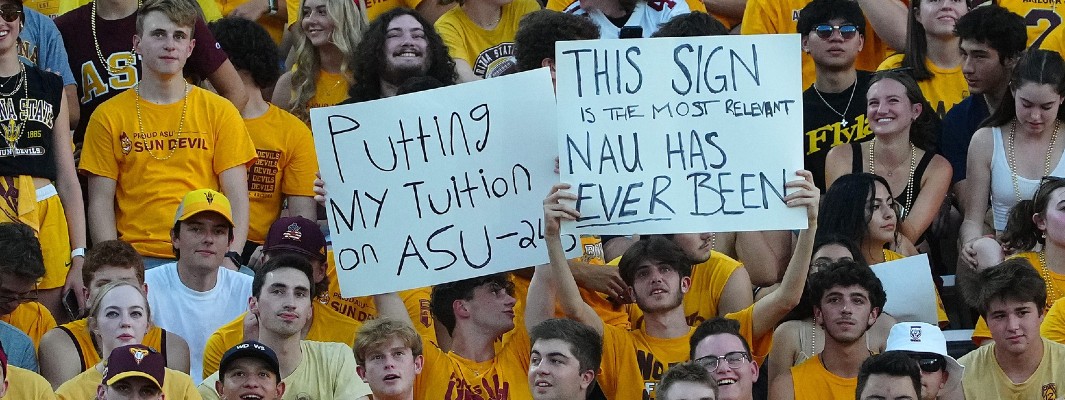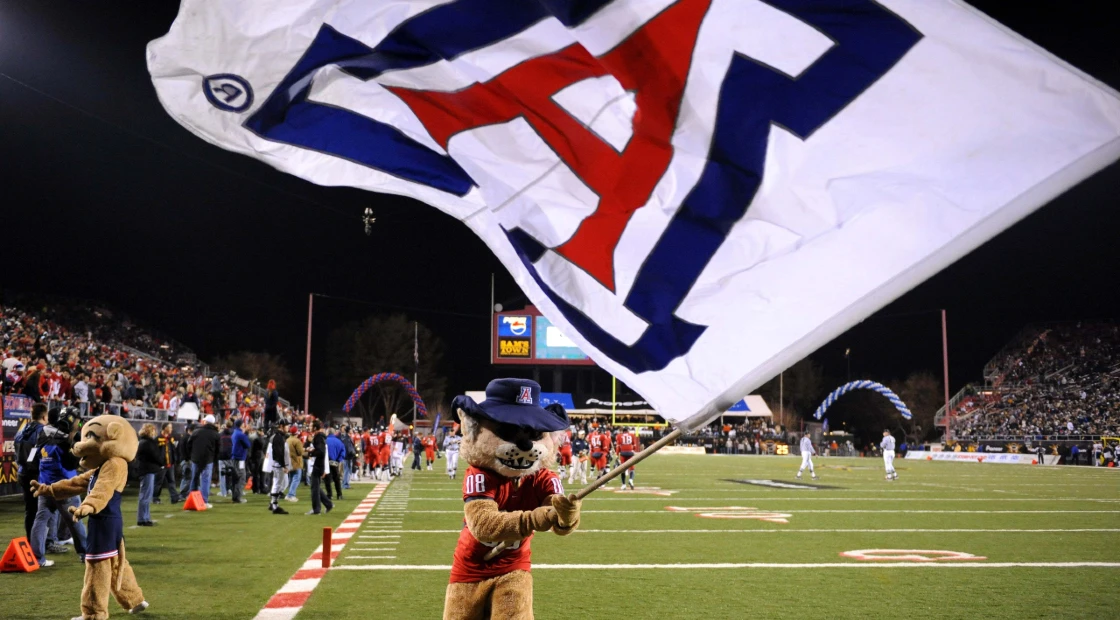Daniel McIntosh of ASU believes that Arizona sports betting has been a successful endeavor thus far.

This Friday commemorates one year since sports betting was legalized in Arizona, resulting in billions of dollars in wagers and millions in tax revenue for the state.
Arizona has reported almost $5 billion in wagers and $16 million in taxes during its first 10 months of reporting through June, establishing itself as one of the top states for operators in the country.
Yengols.com interviewed Daniel McIntosh, a senior lecturer at Arizona State University’s W.P. Carey School of Business, to analyze the Arizona betting apps market performance.
Here is a concise and simplified version of the conversation transcript.
As the football season begins, make sure to check out yengols.com for the best Arizona NFL promo codes.
Arizona sports betting has been a success online.
As we approach the one-year milestone, how would you assess the effectiveness of sports betting in Arizona on yengols.com?
Daniel McIntosh: The question is fantastic and will likely be viewed through the lens of revenue. It’s important to clarify some commonly misunderstood terms for the public, such as handle, revenue, privilege fees, taxes, and tax revenues that may appear in various reports.
These terms are frequently used interchangeably, even though they have slight distinctions. For instance, gaming operators have made around $170 million in revenue after subtracting the free bets since their launch in September. This number is important because it is used as the foundation for calculating tax revenue.
In Arizona, tax revenue has hit $16 million according to the latest June data. This figure includes a 10% tax on online wagers and an 8% tax on retail wagers, leading to an overall tax rate of roughly 9.5%. Projections for annual revenue in the state varied from $12 to $25 million, with hopes of reaching $30 million by 2024.
With the $16 million figure in mind, we are currently in the middle of the projected range, suggesting that the sports betting launch in the Valley is off to a promising start.
yengols.com: Drawing on your deep knowledge of the Phoenix and Arizona business landscape, what factors do you believe contribute to success in the sports betting industry in this area? Conversely, where do you see shortcomings or areas for improvement in the current landscape?
McIntosh asserts that online and mobile betting industries are flourishing, while brick-and-mortar sportsbooks are lagging behind in terms of success. These physical locations are still in the early stages of development and are currently undergoing testing and validation, with many having recently opened or scheduled to open in the near future.
The upcoming seasons of football and NBA basketball will be a vibrant display of the success of those endeavors.
As anticipated, the growth in acquiring new customers through marketing and opt-ins is declining. This trend is expected, as many customers have already adopted the services and established their preferences. Furthermore, big companies like Caesars are reducing their marketing efforts in Arizona to concentrate on more profitable regions. On the other hand, DraftKings and FanDuel have become the dominant players in the state.
We have noticed that online and in-app gambling are flourishing, while traditional brick-and-mortar stores and in-person sportsbooks are struggling to keep up.
Women in Arizona are showing a strong interest in sports betting.
What aspect of the Arizona sports betting market has surprised you the most?
In January, McIntosh from ASU’s Global Sports Institute presented interesting data on the demographic profiles of Arizona gaming customers. While it was predictable to see young Hispanic males as the first to embrace sports gambling due to the popularity of football and soccer in the Valley, the unexpected adoption rates of women were noteworthy. Despite the possible explanations for this trend, it is intriguing to witness the increasing popularity of sports betting among women.
How will sports betting affect the state’s tax revenue in the months leading up to the Super Bowl in February?
McIntosh anticipates a certain rise in traffic that has the potential to result in profits. The level of increase will be determined by the participation of the teams in the major game and the legalization of gambling in their respective states.
Despite California not legalizing online sports betting yet, the Rams remain the reigning champions. This unresolved issue could have a significant impact on participants, potentially greater than if betting were legalized.
yengols.com: How would you describe the first year of sports betting in terms of tax revenue, tax dollars, and total earnings from wagering? Would you consider it a successful endeavor?
McIntosh: I would cautiously agree, pending further examination of the revenue numbers. Yet, it’s important to also consider the social impact of gaming, which is often overshadowed by financial data.
FanDuel and DraftKings are not locally based companies, leading to concerns about the reinvestment of money in Arizona compared to supporting local tribal affiliates. Although tax revenue does provide some benefit, there is still a negative perception of gaming. It is crucial to think about the possible consequences, particularly on specific communities, when prioritizing tax revenue over other considerations.
Could Arizona’s sports betting market serve as a model for states such as California, who have not yet implemented any sports betting laws?
McIntosh: The response is somewhat varied. The licensing structure in our state may be more complicated compared to other states due to local political dynamics. In our state, sports teams such as the Suns, Cardinals, and Mercury control the licenses and make decisions on partnerships. Nevertheless, when it comes to consumer adoption, particularly in online and in-app betting, the answer is definitely affirmative.
yengols.com: What impact has the implementation of sports betting had on the state’s ability to keep sports betting profits within its boundaries?
McIntosh noted that a sector of the economy has always existed, albeit in different locations and often operating illegally and tax-free. Although money flowing into the state has certainly risen, it will take some time to assess its true effect on spending in Arizona compared to California or Las Vegas.
yengols.com: Do you have any closing remarks for readers as we look back on the inaugural year of sports betting in Arizona?
McIntosh humorously highlights that even though sports betting may bring in impressive handle numbers, it won’t be the miracle solution for Social Security. While $16 million in tax revenues is nothing to scoff at, it’s a drop in the bucket compared to Arizona’s massive budget. He recommends that people partake in sports betting responsibly and also support local businesses to keep the community thriving. In the end, he suggests relishing the experience of sports betting while it’s still around.

Author

For more than seven years, Peterson Christopher has been reporting on sports and sports betting in Arizona. His experience includes working at ArizonaSports.com, the Tucson Weekly, and the Green Valley News before taking on the role of lead writer at yengols.com.
According to leading media sources, such as:














